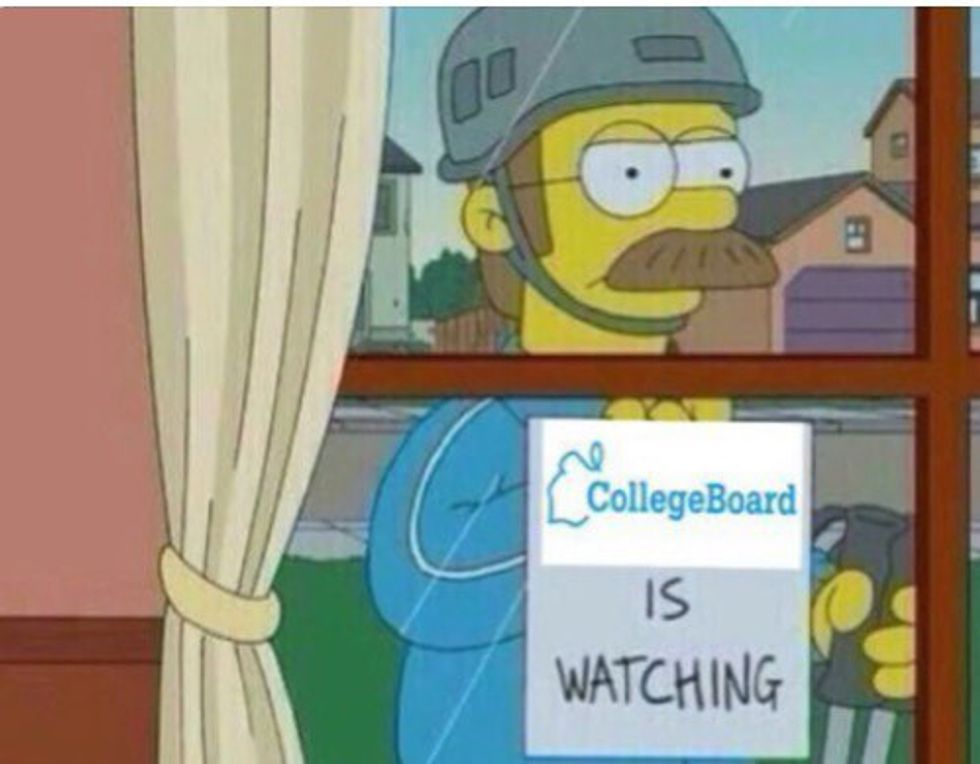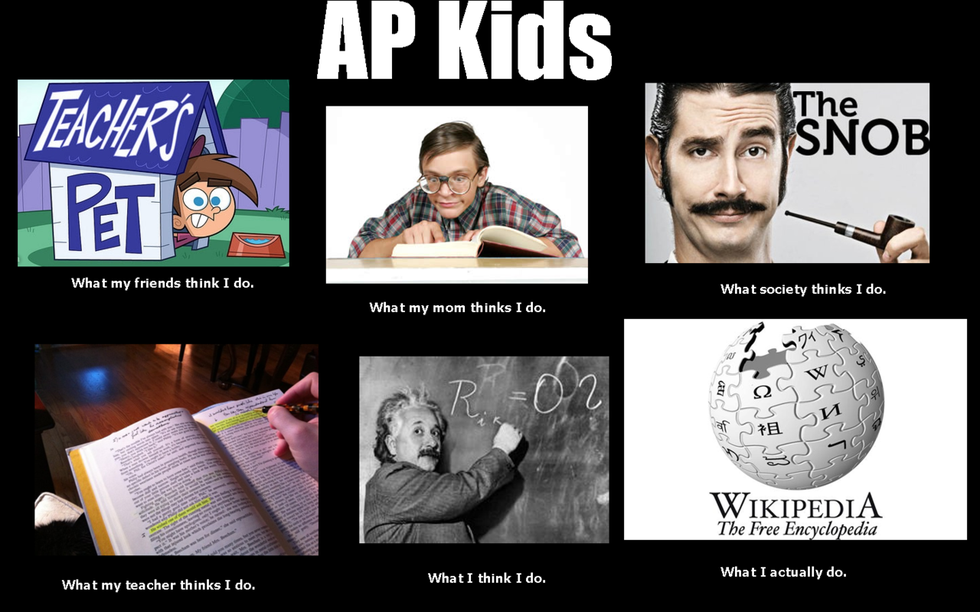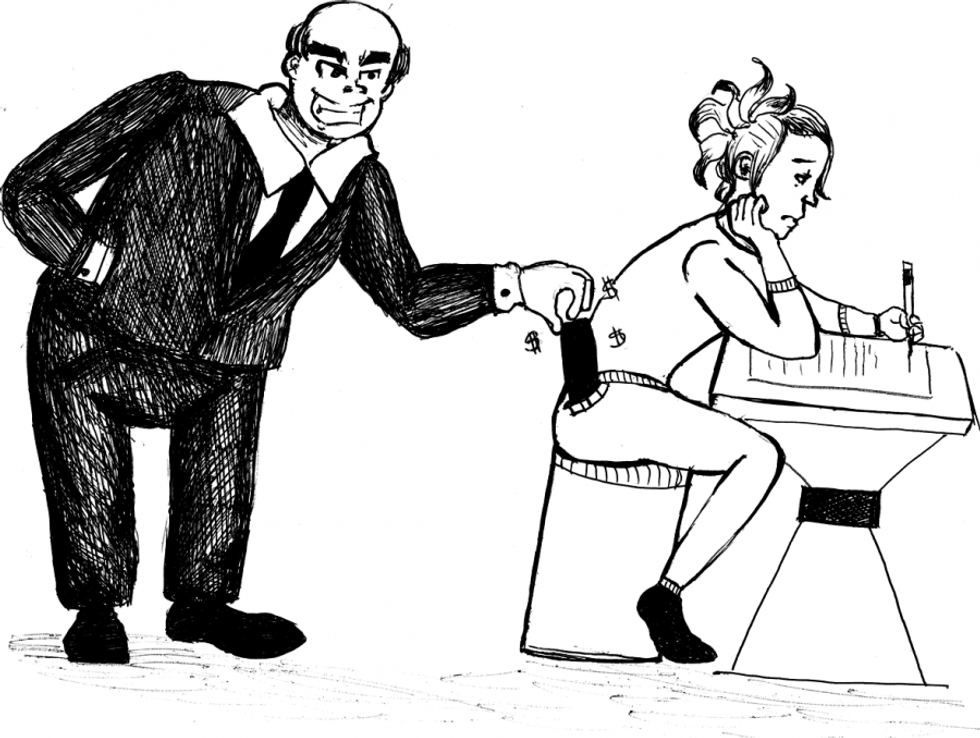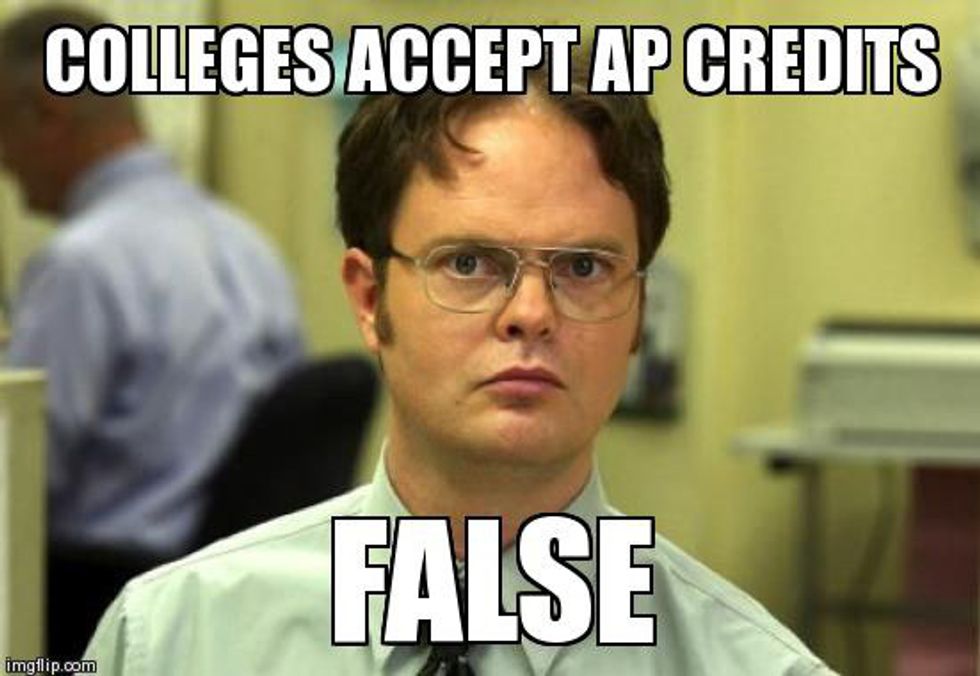Ah, College Board. To parents, it's synonymous with the uncertainties and "growing up" associated with the college admissions process. To teachers, it's associated with a standardized curriculum, deadlines, and exam scores. To students, it's the ultimate super-villain, its name synonymous with fear, stress, and standardized tests.
Recommended for you
For those who are unaware, the College Board is a not-for-profit organization founded in December 1899 to expand access to institutes of higher learning. It conducts the SAT, the PSAT, and AP exams annually, just to name a few of its offerings. It's absolutely instrumental in facilitating the transition between high school and college for prospective undergraduate students, and it has cemented its role as such. Even so, it is not commonly mentioned in mainstream media, aside from a controversy in 2015 that arose over the teaching of AP United States History class. In short, it's a long-standing institution that has a monopoly over the futures of prospective students.
Even so, the College Board is not entirely evil. It has helped to standardize the college admissions process, and in doing so, has made higher education more accessible to prospective undergraduate students around the globe. The SAT, for example, gives schools a singular common way to compare students across different schools and across international borders. It's indubitably an imperfect solution (there are language barriers, some students have access to more resources in studying than others), but it provides a necessary functionality to the admissions process.
One of the most controversial aspects of the College Board is its conduct of its Advanced Placement, or AP exams. Essentially, these are tests that motivated students take at the end of a rigorous AP course in high school in order to attain college credit for their classes. The material is standardized, centralized, and taught over the course of a school year. AP courses are offered nationwide, as well as in Canada and internationally.
As a student who has taken a multitude of AP courses, I feel that it is important to discuss my experience taking these classes. While it was overall and enjoyable experience, I think that there were a lot of systemic problems with AP courses that, if solved, could make the courses even better. As such, I will break down my criticism into three categories: the good, the bad, and the "meh."
The Good
Students get out of general education requirements. This is the most obvious benefit to taking AP courses, and it's the one that College Board markets the most often. By taking AP classes and doing well on exams, students are able to get a head start on their major course of study. They have more time to allocate to completing the degree in the major of their choice, as opposed to fulfilling general education requirements. This is part of the reason why AP English Language and AP English Literature are taken so often by such a broad variety of students. Even though students in an AP English class might want to be engineers instead of an English major, they still have a lot to gain by taking the class, as all students need to take a freshman English class at university.
AP classes are a less expensive way to gauge your interest in a potential major. Let's be honest: nobody really knows what they want to do for the rest of their life in high school. Students who once wanted to be astronauts now think that economics is their forte, and others who wanted to be artists now want to become writers. AP courses are an excellent way for students to take more in-depth classes that give them a taste of fields that they may eventually want to pursue. Even if a student later learns that they don't enjoy a subject as much as they had thought, the high school AP class has given them this knowledge for a much lower cost than a university class.
AP classes bring like-minded individuals together. As someone who ponders the world on a deep level on a daily basis (if it isn't already obvious from my articles), I often find it difficult to initiate conversation concerning intellectual matters. AP classes helped to find me other people that were also interested in the subjects that I found intriguing, and ultimately helped to shape my social circle. It was really nice that I had the option to take these classes and meet people with whom I can talk about abstract ideas and speculations that I have. It really is a rewarding experience, and it was great to be exposed to such a great group of people.
The Bad
Taking an AP course is an imperfect substitute for a college course. Unfortunately, no matter how hard College Board tries to make it seem, a college level course is a different experience from a high school course. By virtue of class scheduling, a college workload is quite different from that of a high school. Although AP classes in high school will generally cover the same content as a college class, the high school course's pacing is generally much slower. This gives classes more time to cover the material and more depth of study, but it often results in more and generally less meaningful homework. Not to mention that some colleges have curricula for courses that deviate from the AP standard, leaving some students unprepared in courses like Calculus.
Not all high schools have AP programs on equal footings. Simply put, not all schools have the same variety of AP programs and quality of AP teachers that other schools do. Different schools have different quality of programs, and as such, some students will be disadvantaged from the very start of the exams. Of course, this is part of a larger problem,the disparities in quality between rich and poor schools.
Costs are high. At $95.00 a shot, AP tests are not cheap. While there are subsidization options for students with financial difficulties, there's little debate that AP exams are one of the college board's biggest money-grabbers. The "not for profit" organization certainly makes quite the shilling, considering that statistically, at least 50% of students will walk away from the AP exam with nothing to show for it. Although the $95.00 figure makes sense when compared to the cost per credit of a college class ($95.00 flat vs. about $1000 for a three-credit Lehigh class), it's still a lot when there's so much pressure on students to perform well on the exam.
Unfortunately, these costs won't be going down anytime soon. Prices typically go up by approximately a dollar or two each year and thus have stayed around the $90.00 mark. The only notable competitor for College Board is the IB program or the International Baccalaureate. It tends to be more popular in Europe and has little chance to overtake the massive empire that is the College Board in this market anytime soon.
The Meh
The exam is "high stakes, high reward". Students usually will only take a given AP exam once (aside from the exception that is AP Calculus). While this definitely incentivizes prospective students to actually put effort into the exam, it puts students in a really stressful position. Most colleges only accept the top scores of fours and fives no the exams, meaning that about half of the students taking a given AP test will not receive credit for their AP scores. Of course, the attribution of these low scores can be due to a variety of reasons, but the point remains that some students will have spent their money for nothing.
To add to this, Colleges have different requirements for AP credits. Some colleges will only accept scores of "5" for a given AP course, whereas others are more liberal, allowing scores of "4" and the occasional "3" to convert into credit. Even so, colleges can change these credit-granting at any time, making it difficult for even the most methodical of students to efficiently allocate their studying.
Getting ahead in classes isn't always a good thing. Despite all of the benefits that come with the AP credits, some students still choose not to accept them. Taking AP classes without taking the exam is certainly a viable option. Just the experience of being in an AP class is a great way to have foresight of what's to come at a university level class. This will, in turn, make a class easier even if the student doesn't achieve AP credit, helping to "pad" a GPA.
It forces you to think about your major earlier than other students. The more AP credits that a student comes in with, the fewer introductory courses are left for a student to take, and thus the student has less time to decide on what they want to pursue. This is a doubled edged sword, as the AP credits will serve as a "safety net" if a student winds up changing majors, but it gives students less time to make an informed decision. Students' tastes constantly change in college, and their chosen majors fluctuate as such. Even so, it's always good to be thinking ahead and planning for the next stage in your life!
In summary, I think that the AP program is certainly well-intentioned, but certainly could use some refining. Many of its problems go hand-in-hand with the current challenges daunting public education, yet the College Board is not free of blame. The College Board would do well to be more receptive of student, parent, and educator feedback, as I feel it would help to improve the program to make it more equitable. I think that if these concerns were addressed more openly, the College Board's reputation would change over time, and ultimately make these tests as equitable, fair and accurate as it professes to make them.
For this week, I would like everyone reading this to reflect on their high school experience, and if applicable, their AP courses. Was there a teacher that stood out to you above all others? What made that teacher so effective? How did the teacher make the class engaging and interesting?



























